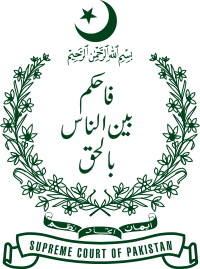Islamic mutual fund works in a similar manner as a conventional fund except that the Islamic mutual fund only deploys funds in Shariah-Compliant investments. Shariah-compliant investments are those which follow the principles of Islam, i.e. they are free of Riba (interest) and Gharar (speculation).
Key Players in a Islamic Mutual Fund
-
Asset Management Company
An Asset Management Company is a Non-Banking Finance Company licensed by the SECP to carry out asset management services. An AMC is responsible for the management of and for operating a mutual fund for the benefit of the unit holders.
-
Trustee
The trustee primarily acts as a custodian of the assets held by the mutual fund. It is also responsible for ensuring that a mutual fund is being managed in accordance with the requirements stipulated under the regulatory framework and the constitutive documents of the mutual fund. The constitutive documents of a mutual fund include the Trust Deed and the Offering Document.
Trust Deed: Trust deed is a principal document for formation, and management of the mutual fund that is executed between the AMC and the trustee. The trust deed specifies the responsibilities of the trustees and the Investment Advisor/ Asset Management Company which need to be strictly adhered to by each concerned party.
Offering Document: A standard offering document of a mutual fund is a fairly comprehensive document covering at a minimum the following:
- Regulatory Approvals;
- Constitution of the Scheme;
- Objectives and Investment Policy;
- Trust Deed;
- Category and Benchmark of the Fund;
-
Shariah Advisor
The Shariah Advisor prescribes criteria for Shariah compliance of the Fund’s investments. The Shariah Advisor accordingly reviews the investments of the Fund to ensure compliance with such criteria. Accordingly, the Shariah Advisor issues a report that is included in the annual report of the Islamic Mutual Fund.
-
Registrar
A registrar of a mutual fund may be an individual or a firm / company. The AMC may itself act as a registrar, or appoint the registrar to perform following functions:
- Maintaining the Register of unit holders;
- Processing requests for issue, redemption, transfer and transmission of Units and requests for recording of pledge or for recording of changes in information/ particulars/ data with regard to the unit holders;
- Issuing account statements and certificates to unit holders;
- Dispatch income distribution warrants and allocating units to unit holders on re-investment of dividends;
- Maintaining records of lien/ pledge/ change on units, transfer/ switching of units, Zakat; and keeping record of change of address/ other particulars of the unitholders.



